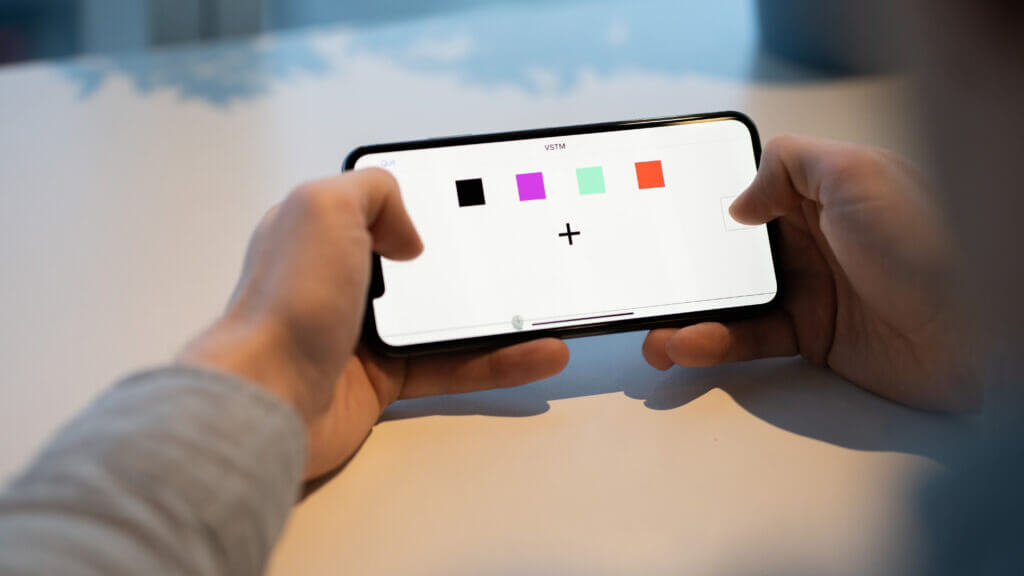A research study within the US Military Health System deploys Clinical ink’s platform among those with and without COVID-19 to understand long COVID
Horsham, PA – Clinical ink, a global life science technology company, has developed a self-testing app to measure cognitive impairment in patients diagnosed with COVID-19 compared to those without COVID-19. The app is currently deployed in a study of the risk factors, symptoms, disease course, and clinical outcomes of COVID-19 among members of the US military population.
The Uniformed Service University (USU) Infectious Disease Clinical Research Program (IDCRP) is conducting the “Epidemiology, Immunity, and Clinical Characteristics of Emerging Infections Diseases with Pandemic Potential,” or EPICC Study to further the IDCRP mission of reducing the impact of infectious disease in the military population. Study results have and will be further shared with Military Health System leaders and others with the goal of informing clinical care and practice guidelines for managing patients with COVID-19. IDCRP is supported by The Henry M. Jackson Foundation for the Advancement of Military Medicine (HJF).
As neurocognitive complications, e.g. ‘brain fog,’ have frequently been reported with COVID-19 and present a significant concern for active duty personnel and others, IDCRP researchers sought a way to evaluate the presence, severity, and domains of cognitive impairment among study subjects. Clinical ink’s mobile app, which is built on the BrainBaseline™ platform—a scientifically validated research solution—is designed to do that using measures that digitally replicate those used in large, in-clinic cohort studies.
“Because the self-testing platform works on participant’s electronic devices—their personal smartphones as well as tablets—and is easy to use, it collects cognitive data remotely, without the need for specially-trained testers,” said Joan Severson, Chief Innovation Officer at Clinical ink.
The mobile assessments require no more than 20 minutes of the participant’s time, and are specifically designed to test the user’s memory, attention, cognitive flexibility, visual short-term memory, and processing speed. Designed by Clinical ink’s internal engineering, clinical, and user experience (UX) experts, the app also includes embedded information about the study and easy-to-understand instructions for completing the assessments. It is currently available for download within the Apple App Store only for study participants
“HJF appreciates how enabling technology can improve research processes, efficiency, and outcomes,” said Dr. Joseph Caravalho, President and Chief Executive Officer of HJF. “Deploying such technology in clinical trials with this select study population has the added long-term benefit of identifying best practices for its use in the general population.”
Of the approximately 7,500 participants currently enrolled in the EPICC study, up to 1,000 will be asked to complete the mobile, cognitive self-assessment as part of a sub-study module at a single cross-sectional timepoint, and again in 6 months for those that are still active in the study at that time.
“We’re delighted to possess the advanced capabilities to furnish USU with a tool to complete this invaluable research,” continued Ed Seguine, Chief Executive Officer at Clinical ink. “The need to better understand the long-term effects of COVID-19 on cognition is one of the most pressing research needs of our current time. We’re proud to be adding to the scientific record in this important area.”
More information about the study can be found here.
About Clinical ink
Clinical ink is the global life science company that brings data, technology, and patient science together. Our deep therapeutic-area expertise, coupled with Direct Data Capture, eCOA, eConsent, telehealth, neurocognitive testing, and digital biomarkers advancements, drive the industry standard for data precision and usher in a new generation of clinical trials. By harnessing digital data, we power sponsors, CROs, researchers, and patients to recenter decentralized trials and rewrite the clinical development experience.
